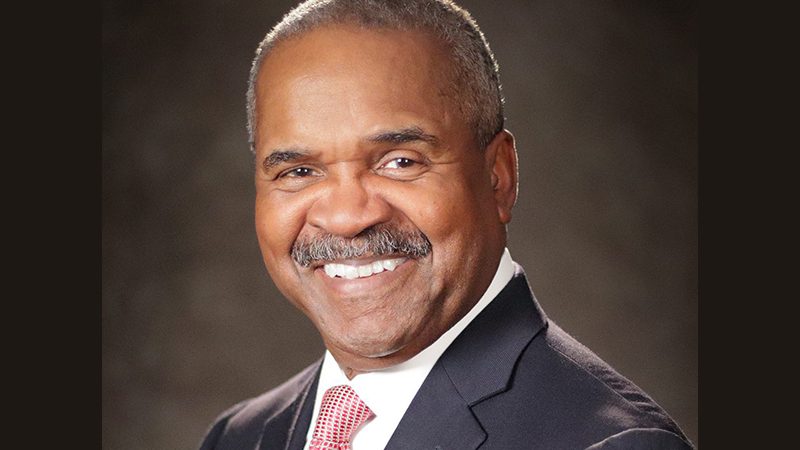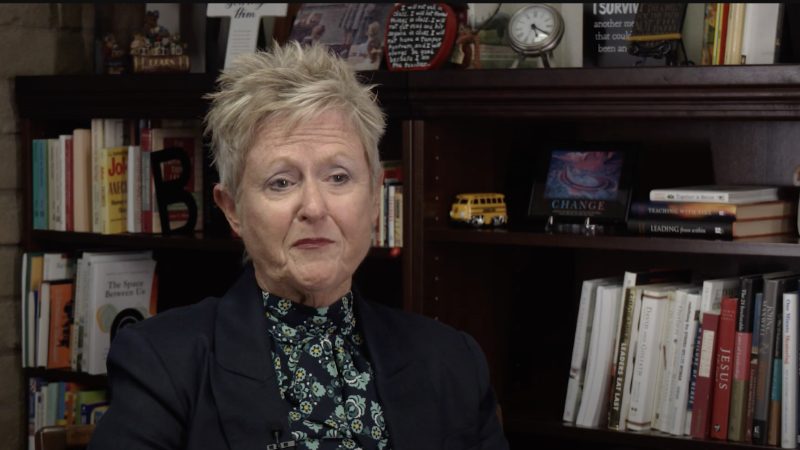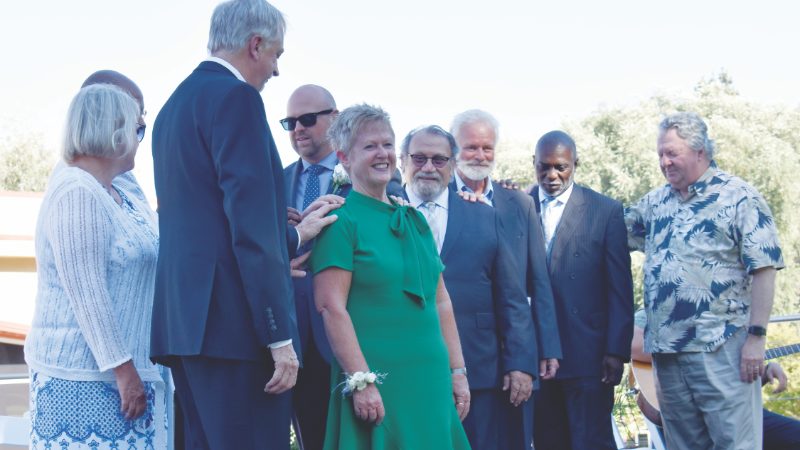The blessing of Christian stewardship lies not only in the act of giving but also in what it encourages us to give. Christian stewardship means to look beyond our own needs and consider how our wealth can be used to further God’s kingdom. Not only does this provide a greater sense of purpose, it also helps open up conversations about issues like poverty, inequality, and injustice—all topics that can be intimidating or uncomfortable for some people. The Bible teaches us that everything is a gift from God, so when we are generous with the resources with which He has blessed us (treasures, time, and talents), we can use them to further His kingdom. This means using our financial gifts to support missions and ministries, volunteering our skills and abilities in service of others, or simply offering up a few hours of our week to help those in need. No matter what form it takes, Christian giving should always be done with an open heart and mind—for when we give freely out of love for God and His people, the blessings will follow for both the giver and the receiver. The series of five articles on stewardship beginning on p. 8 was written by Charles Mills—a frequent contributor located in West Virginia—based on material provided by the Recorder staff.
THE WIDOW'S MITE I Havenlight Publishing by James Christensen
Studies show that the fear level in our present society is one of the highest that humanity has ever experienced. There are many causes behind this alarming situation: terrorism, criminality, economic depression, climate conditions. People feel that they can’t depend on government, police, and other institutions to protect them from threats. This incapacity to acknowledge the existence and presence of a dependable being or entity has led to the escalation of this culture of fear.
Such was also the state of mind of the 10 spies after their 40-day survey of the Promised Land. Their report included these fear-filled words: “We can’t attack those people; they are stronger than we are.… The land we explored devours those living in it. All the people we saw there are of great size.… We seemed like grasshoppers in our own eyes, and we looked the same to them” (Numbers 13:31-33).
Then, surprisingly, one of the spies, the son of Jephunneh, demonstrated courage and boldness. “Then Caleb silenced the people before Moses and said, ‘We should go up and take possession of the land, for we can certainly do it’” (Numbers 13:30). Was he naïve? Was he trying to impress Moses? Not at all! His courage sprung from a deep conviction. “The land we passed through and explored is exceedingly good. If the Lord is pleased with us, he will lead us into that land…and will give it to us” (Numbers 14:7-8). Then he spelled out his antidote for fear: The Lord is with us and Lord will lead us. He was an inspiration for Joshua, their future leader. He can also be an inspiration for us today.
Destructive pride
Pride, which often serves as the foundation for fear, is disastrous for everyone it controls. Wise man Solomon wrote that it almost always precedes a fall (Proverbs 16:18).
In the story of the king of Babylon—the symbol of human pride—we find the cure. Nebuchadnezzar, gazing out at his capital city, announced, “Is not this the great Babylon I have built as the royal residence, by my mighty power and for the glory of my majesty” (Daniel 4:30)? He had reason to be proud of the city. The walls and buildings were massive, it’s reputation for learning and culture was impressive, and the Hanging Gardens were a wonder.
We read in Daniel 4:33 the consequence of Nebuchadnezzar’s pride, “He was driven away from people and ate grass like the ox. His body was drenched with the dew of heaven until his hair grew like the feathers of an eagle and his nails like the claws of a bird.” It’s hard to put a name on the disease that affected the proud monarch. The least we can say is that he was suffering from an acute form of identity disorder.
Fortunately, the saga of Nebuchadnezzar ends with a report about his restoration. “At the end of that time, I, Nebuchadnezzar, raised my eyes toward heaven, and my sanity was restored. Then I praised the Most High; I honored and glorified him who lives forever” (Daniel 4:34). He was healed from his pride—healed from his identity disorder—by accepting God as Provider and choosing to depend solely on Him.
Consequences of selfishness
Selfishness is another flaw of humanity’s fallen nature. The Apostle James writes about the consequences of such an emotional malady. “For where you have envy and selfish ambition, there you find disorder and every evil practice” (James 3:16). Selfishness gives rise to objectionable and unfair actions. “But for those who are self-seeking and who reject the truth and follow evil, there will be wrath and anger” (Romans 2:8). Selfishness is a serious problem. How can it be overcome?
King David shares a testimony about his capacity to live an unselfish, generous life. “But who am I, and who are my people, that we should be able to give as generously as this?” In the very next sentence, he reveals the underlying factor. Speaking to God, he announces, “Everything comes from you, and we have given you only what comes from your hand” (1 Chronicles 29:14). Once David realized that God was the Provider of everything, he naturally became a channel to pass blessings to others.
Acknowledging God as the Provider moves us away from selfishness and leads to generosity. “Every man must decide whether he will walk in the light of creative altruism or in the darkness of destructive selfishness,” said Martin Luther King Jr.
What will be our decision going forward? How will we choose to live?
SERIE SOBRE MAYORDOMÍA parte 5: Dependencia de Dios
La bendición de la mayordomía cristiana radica no sólo en el acto de dar, sino también en lo que nos motiva a dar. La mayordomía cristiana significa ver más allá de nuestras necesidades y considerar cómo nuestras bendiciones pueden ser utilizada para promover el reino de Dios. Eso no solo nos proporciona un mayor sentido de propósito, sino que también nos ayuda a abordar temas como la pobreza, la desigualdad y la injusticia, que pueden ser intimidantes o incómodos para algunas personas. La Biblia nos enseña que todo es un don de Dios, así que cuando somos generosos con los recursos con los que él nos ha bendecido (tesoros, tiempo y talentos), podemos usarlos para promover su reino. Eso significa usar nuestras aportaciones financieras para apoyar misiones y ministerios, ofrecer voluntariamente nuestras habilidades y destrezas al servicio de los demás, o simplemente ofrecer unas horas a la semana para ayudar a los necesitados. No importa qué formas tomen, las ofrendas cristiana siempre deben hacerse con un corazón y una mente abiertos, porque cuando damos libremente por amor a Dios y a su pueblo, las bendiciones impactan tanto al dador como al receptor. La serie de cinco artículos sobre mayordomía que comienza en la página 8 fue escrita por Charles Mills, un colaborador frecuente ubicado en West Virginia, basado en material proporcionado por el personal del Recorder.
THE WIDOW'S MITE I Havenlight Publishing POR James Christensen
Los estudios muestran que el nivel de temor en nuestra sociedad es uno de los más elevados que la humanidad haya experimentado. Hay muchas causas detrás de esa alarmante situación: terrorismo, criminalidad, depresión económica, condiciones climáticas. Las personas sienten que no pueden depender del gobierno, la policía y otras instituciones para protegerlas de las amenazas. Esa incapacidad para reconocer la existencia y presencia de un ser o entidad confiable ha llevado a esa escalada en esta cultura de temor.
Tal era también el estado mental de los diez espías después de su encuesta de 40 días en la Tierra Prometida. Su informe incluía estas palabras llenas de temor: «No podremos combatir contra esa gente. ¡Son más fuertes que nosotros…! La tierra que hemos explorado se traga a sus habitantes, y los hombres que allí vimos son enormes… Comparados con ellos, parecíamos langostas, y así nos veían ellos a nosotros» (Números 13:31-33).
Entonces, sorprendentemente, uno de los espías, el hijo de Jefone, demostró coraje y audacia. «Caleb hizo callar al pueblo ante Moisés, y dijo: Subamos a conquistar esa tierra. “Estoy seguro de que podremos hacerlo”» (Números 13:30). ¿Era ingenuo? ¿Estaba tratando de impresionar a Moisés? ¡De ninguna manera! Su valor surgió de una profunda convicción. «La tierra que fuimos a explorar es excelente. Si el Señor nos favorece, nos ayudará a entrar a esa tierra y nos la dará» (Números 14:7-8, DHH). Explicó después su antídoto para el temor: El Señor está con nosotros y el Señor nos guiará. Fue una inspiración para Josué, su futuro líder. Él también puede ser una inspiración para nosotros.
Orgullo destructivo
El orgullo, que a menudo sirve como base para el temor, es desastroso para todos los que controla. El sabio Salomón escribió que casi siempre precede a una caída (Proverbios 16:18).
En la historia del rey de Babilonia, el símbolo del orgullo humano, encontramos la cura. Nabucodonosor, mirando a su ciudad capital, anunció: «¡Miren qué grande es Babilonia! Yo, con mi gran poder, la edifiqué como capital de mi reino, para dejar muestras de mi grandeza» (Daniel 4:30). Tenía razones para estar orgulloso de su ciudad. Las paredes y los edificios eran enormes, su reputación de aprendizaje y cultura era impresionante, y los Jardines Colgantes eran una maravilla.
En Daniel 4:33 leemos la consecuencia del orgullo de Nabucodonosor: «Fue separado de la gente; comió hierba, como los bueyes, y el rocío empapó su cuerpo, hasta que el pelo y las uñas le crecieron como si fueran plumas y garras de águila». Es difícil ponerle un nombre a la enfermedad que afectó al orgulloso monarca. Lo menos que podemos decir es que sufría de una forma aguda de trastorno de identidad.
Afortunadamente, la saga de Nabucodonosor termina con un informe sobre su restauración. «Cuando el tiempo de la sentencia se cumplió, yo, Nabucodonosor, miré al cielo y me sentí curado de mi locura; entonces bendije al Dios altísimo y alabé con estas palabras al que vive para siempre» (Daniel 4:34). Fue sanado de su orgullo, sanado de su trastorno de identidad, al aceptar a Dios como su proveedor y elegir depender únicamente de él.
Consecuencias del egoísmo
El egoísmo es otro defecto de la naturaleza caída de la humanidad. El apóstol Santiago escribe acerca de las consecuencias de tal enfermedad emocional. «Donde hay envidias y rivalidades, hay también desorden y toda clase de maldad» (Santiago 3:16). El egoísmo da lugar a acciones injustas. «Pero castigará con enojo a los rebeldes, es decir, a los que están en contra de la verdad y a favor de la maldad» (Romanos 2: 8). El egoísmo es un problema grave. ¿Cómo se puede superar?
El rey David comparte un testimonio acerca de su capacidad para vivir una vida generosa y desinteresada. «Pues, ¿quién soy yo y qué es mi pueblo para que seamos capaces de ofrecerte tantas cosas?» En la siguiente oración, revela el factor subyacente. Hablando a Dios, anuncia: «En realidad, todo viene de ti y sólo te damos lo que de ti hemos recibido» (1 Crónicas 29:14). Una vez que David se dio cuenta de que Dios era el proveedor de todo, naturalmente se convirtió en un canal para pasar bendiciones a otros.
Reconocer a Dios como el proveedor nos aleja del egoísmo y conduce a la generosidad. «Cada hombre debe decidir si caminará a la luz del altruismo creativo o en la oscuridad del egoísmo destructivo», dijo Martin Luther King Jr.
¿Cuál será nuestra decisión en el futuro? ¿Cómo elegiremos vivir?






